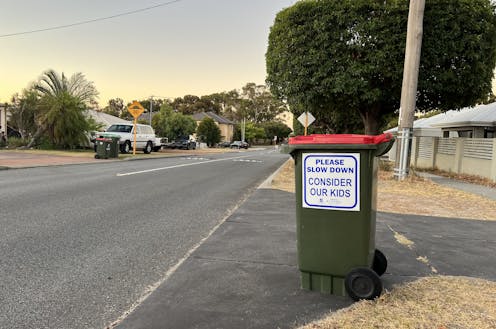How to never get a speeding fine again — and maybe save a child's life
- Written by Matthew Mclaughlin, Adjunct Research Fellow, The University of Western Australia

What if our cars didn’t allow us to speed? Or, at least, strongly encouraged us not to speed?
We could help motorists avoid speeding — and therefore reduce emissions and fuel use[1], improve traffic flow[2], reduce crashes[3], lower insurance costs[4], make streets feel safer[5] to walk and cycle – and totally avoid speeding fines.
Reducing speeding is crucial[6] if we are to reduce the rising road toll. More than 1,200 people were killed[7] on Australian roads in the past year.
It’s no wonder Australians want this technology – 81%[8] believe “intelligent speed assist” technology is important for making roads safer.
Technology to stop speeding
“Intelligent speed assist” is the name of the low-cost[9] technology that could save lives every year by reducing speeding.










